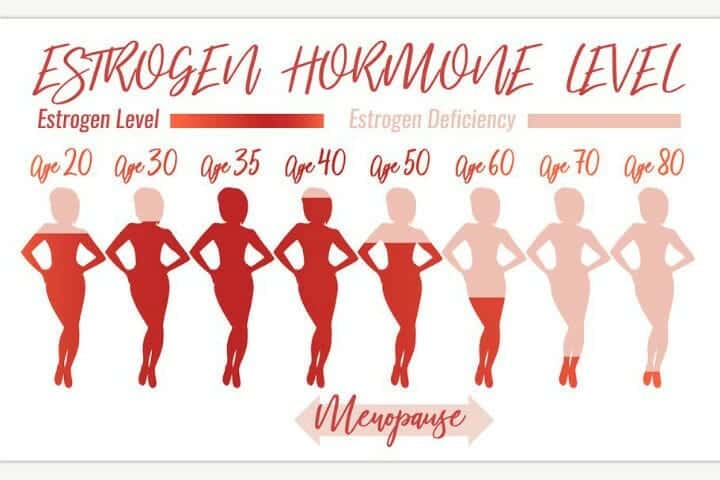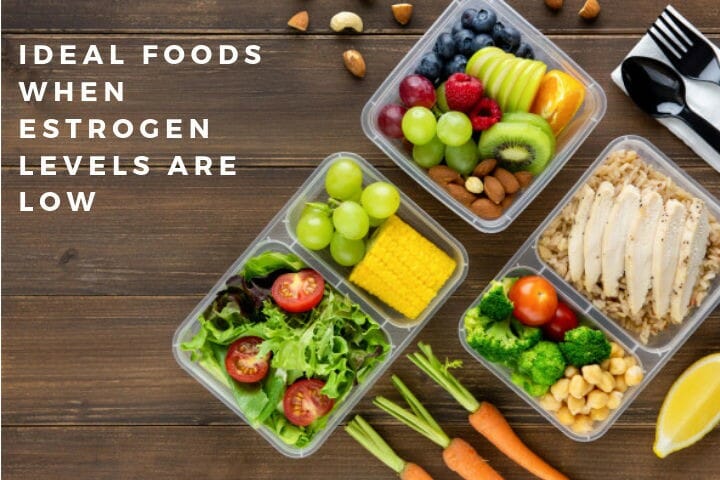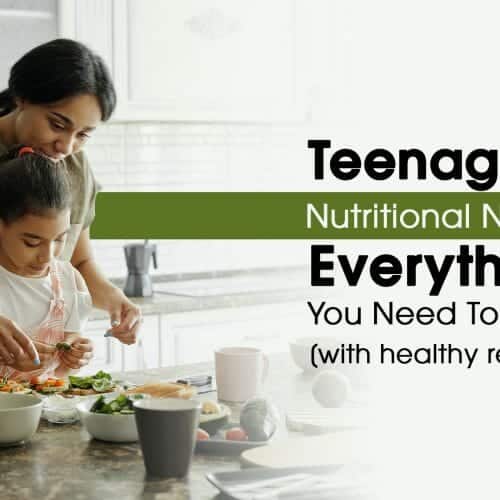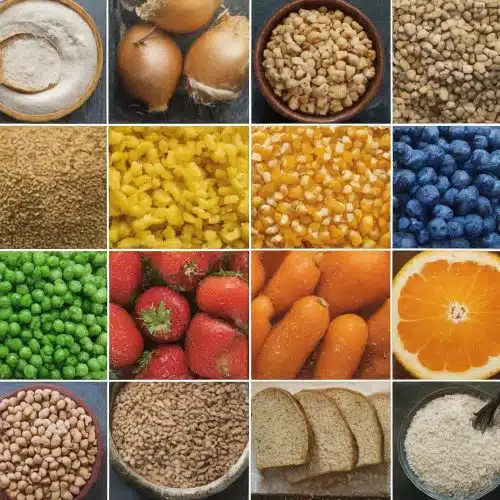It is an inevitable fact that women reach the Menopause stage sooner or later in life. The natural process brings about with it various irksome symptoms which positions many women in the state of angst and agony. Generally, this natural change develops in women between the age gap 45 to 55 years. The average age span is detected to be 51 years while in the case of premature menopause a woman is bound to undergo the menopausal stage in her 30’s or even younger. With better understanding of the process and making changes to the diet patterns menopause can be handled well.
What is Menopause and Estrogen?
An adaptation in hormone levels is what leads to the Menopause stage. During the phase of a woman’s fertile years she has the innate gift to produce an egg every single month with the backing of three main sex hormones that goes by the name estriol, estrone, and estradiol. They are collectively known as Estrogen and are in charge of the enhancement of female characteristics in a human body. Ovaries are the major producer of estrogen in a female body while a small amount is produced by the adrenal glands. The placenta organ that develops in the uterus of a woman during her pregnancy state also produces a petite amount of estrogen.
It is the estrogen that smoothes the ovulation process and creates an environment that facilitates fertilization and implantation of the fertilized egg to the uterus. In case of no implantation women experience their monthly period without any change. With age, women tend to lose their ability to store the egg in ovary which diminishes their probability to get pregnant. During this period the production of estrogen declines which causes the body to act in a different way. However, the production of estrogen will not die down all of a sudden. It takes its own time to completely reach the stage of nil production and this time period is known as Peri-Menopause.
When a woman reaches her 50’s the monthly cycle ceases totally at some point which sequentially ceases the ovulation process and her periods, which in turn completely eliminates her chances of conceiving naturally. This stage is known as the Menopause.
How does it impact women’s health?
Nearly in 60 percent of women the reflection of their new state of inability to reproduce can be intensely felt. Apart from being a medical condition menopause is a personal experience to every woman. The reduction in the production of estrogen causes distress in women and it requires proper medical attention.
The lack of estrogen production in the ovaries has its impacts felt in many body parts of a woman like bones, brain and skin. It disrupts the well being of a woman and upsets them emotionally while having an impact in characterizing the flexibility and thickness of their skin. Since estrogen is the stimulant to sustain the bone strength in a woman, the lack of production of estrogen has direct influence on affecting the strength and density of bone in women. If not taken proper care at the initial stage it can lead to Osteoporosis, a state where bone density decreases and bone size leans increasing the risk of getting fractured quite easily.
Symptoms of Menopause
The most common symptom to identify Menopause is the hot flushes that women experience. Besides this, irritation in skin, urinary tract infection, vaginal dryness, mood swing, sleeplessness and sweats at night, frequent urinary incontinence and loss of interest in sex.
Though Menopause cannot be undone with a proper diet you can seek redemption from the symptoms like hot flashes, poor sleep and low bone density.
Fruits and vegetables
Fruits and vegetables are rich in vitamins and minerals, possess high fiber content and they also contain antioxidants. So designing a diet half filled with veggies and fruits can help you reduce the symptoms.
In a study performed on 1700 menopausal women, it was detected that the group of women that had fruits, vegetables, soy, and fiber in their diet had 20 percent decrease in their hot flashes when compared to the general statistical data of hot flash intensity complained by menopausal women.
Proteins
As mentioned above, nil production of Estrogen will weaken the bone density and make them vulnerable to fracture. So in order to maintain the bone strength and muscle mass women in the Menopause stage should intake more amount of protein. Women over 50 should intake 1.2 to 1.6 grams of protein per kg of their body weight or in case of quality protein they can simple consume 25 to 30 grams of protein per meal. Meat, fish, eggs, legumes, and dairy products are the foods high in protein.
In a medical case study it is found that Menopausal women who habitually have a protein rich diet are found to have better bone strength and density than who do not.
Dairy Products
Along with protein Menopausal women need calcium, magnesium, potassium, phosphorus, vitamin K and vitamin D to strengthen their bone structure. It is advisable for Menopausal women to increase the intake of dairy products like cheese, yogurt, and milk.
In a review study it is detected that dairy products rich in amino acid glycine have the ability to improve sleep in Menopausal women and make them have a sound sleep.
Why is it important to make changes in the food patterns?
When women reach the Menopause stage in life they undergo changes in their metabolism which leads to the reduction in bone density and amplifies the risk of getting cardiac diseases. In addition to this, women are prone to undergo unpleasant symptoms that could disturb them both psychologically and emotionally, promote mood swings and make things difficult for them to have a peaceful sleep. A change in diet in accordance to deal with menopause is very significant as they help to reduce the intensity of the symptoms that they undergo.
Looking for some healthy food options to start? We’ve got you covered in our Health section that has a wide variety of tasty and delicious food focusing purely on health.















